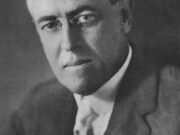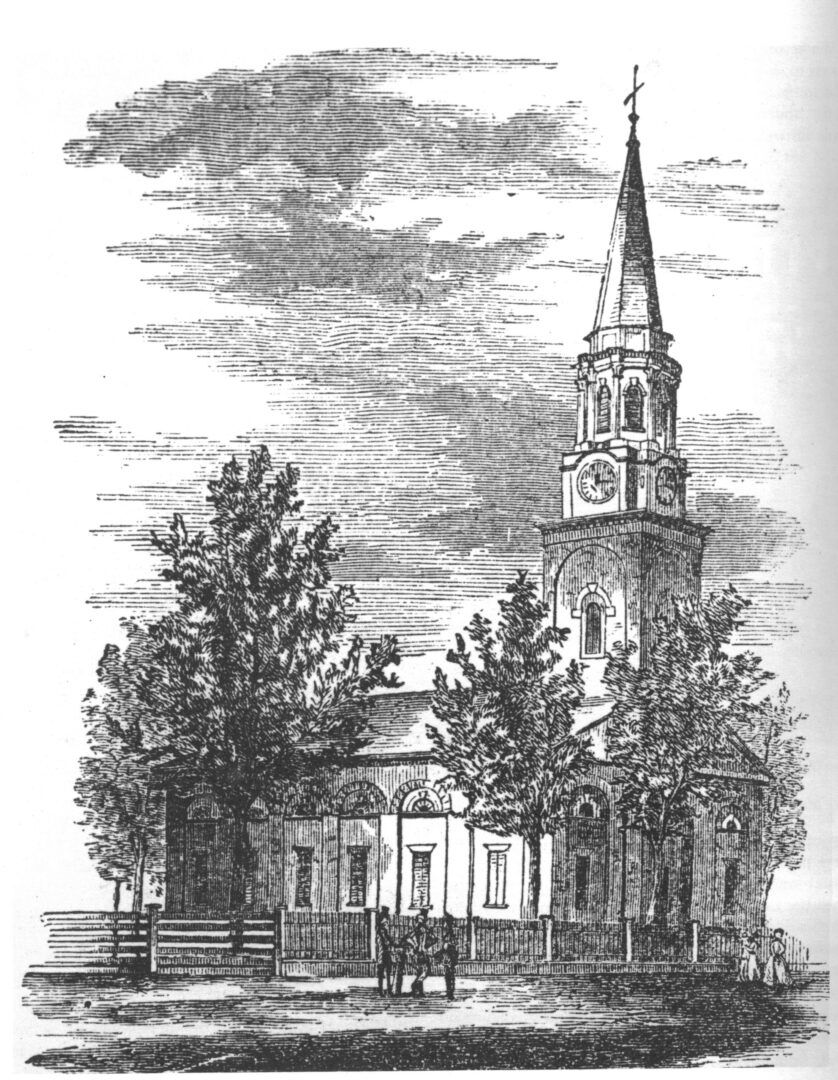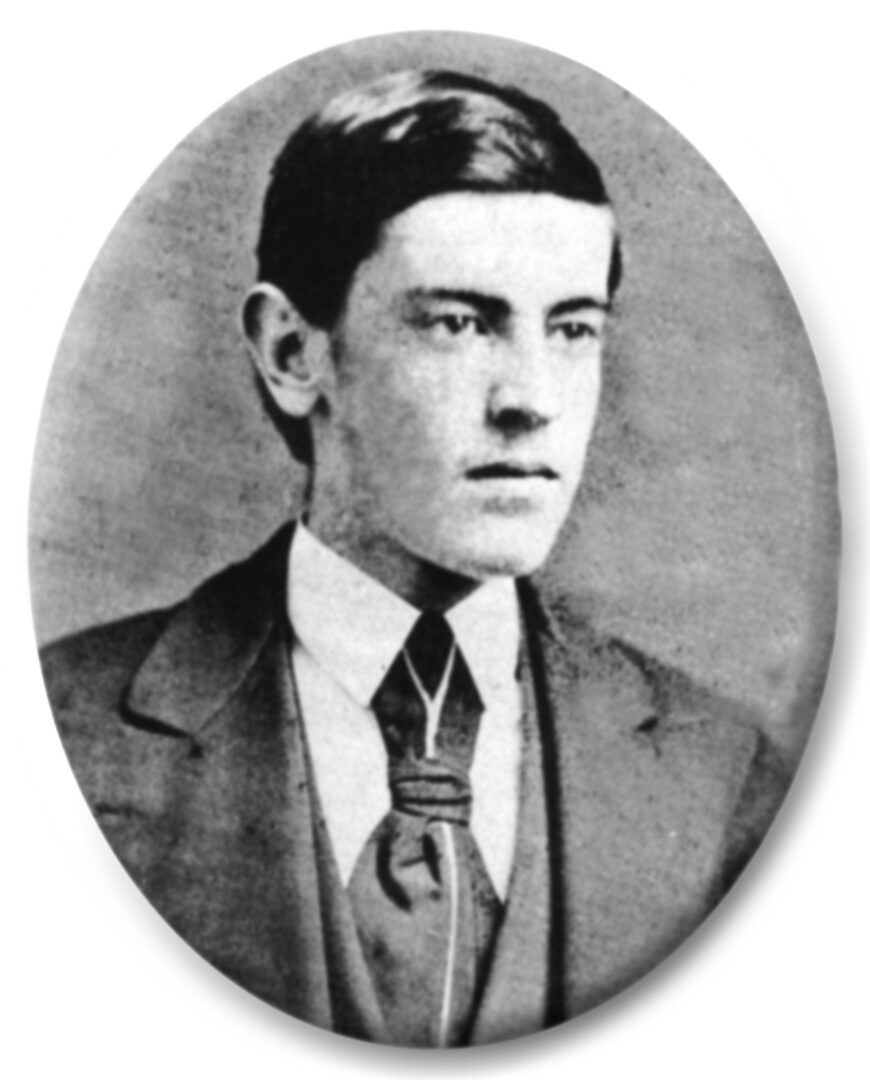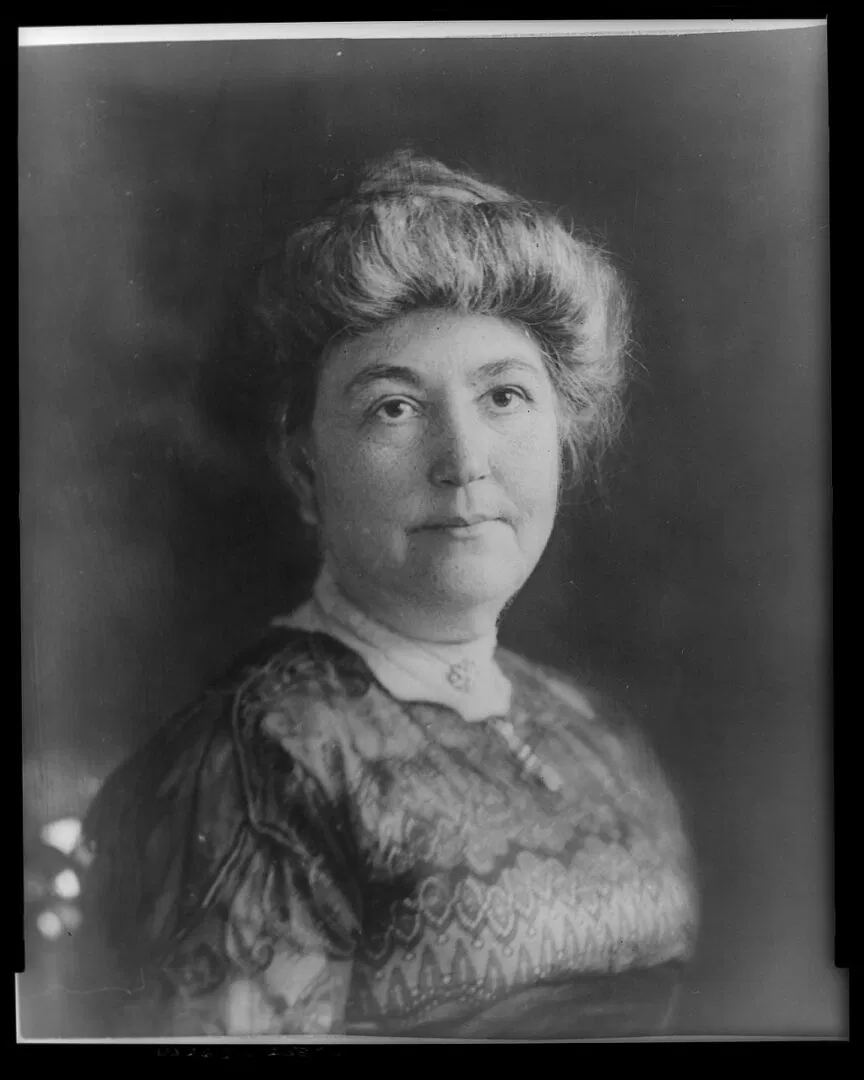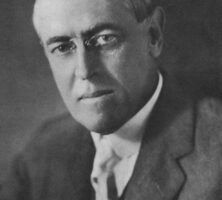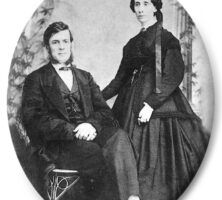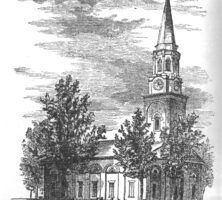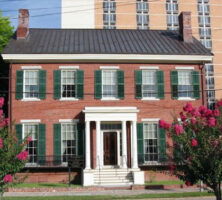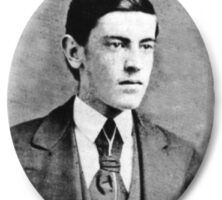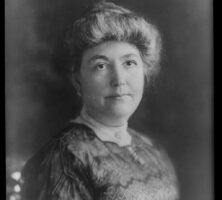Woodrow Wilson, the twenty-eighth president of the United States, spent many of his formative years as a resident of Georgia. As a child he lived in Augusta between 1858 and 1870. As a young adult he practiced law in Atlanta for a year beginning in May 1882. He was married in Savannah in 1885, and two of his three children were born in Gainesville, in 1886 and 1887. His first wife, Ellen Louise Axson, was born in Savannah and spent most of her childhood in Rome.
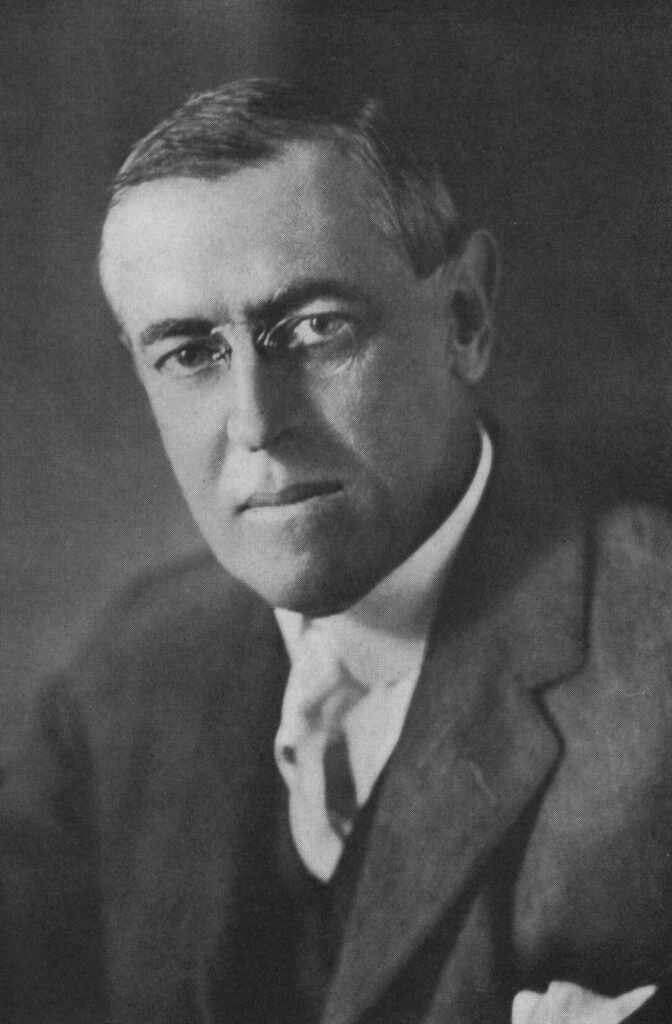
Augusta
The son of Joseph Ruggles Wilson and Janet E. Woodrow, Thomas Woodrow Wilson was born in Staunton, Virginia, on December 28, 1856. He was known in his childhood as “Tommy.” His father, a Presbyterian clergyman, accepted the pastorate of Augusta’s First Presbyterian Church after performing the wedding of his brother-in-law, James Woodrow of Milledgeville, and Felixina Shepherd Baker, in 1857. The Wilsons, including two older daughters, moved to Augusta during the week of young Tommy’s first birthday, and the elder Wilson began his duties the second Sunday in January 1858. A fourth child and second son was born in Augusta.
When the Wilson family moved to Augusta, they occupied the manse of First Presbyterian Church located in the present 600 block of Greene Street. Two years later, hoping a more comfortable dwelling would encourage their pastor to stay, the Augusta congregation purchased a new manse across the street from the church, at 53 McIntosh Street (now known as 419 Seventh Street), on the corner of Telfair Street. It was a new two-and-a-half-story brick house with ten main rooms and a separate brick service building. The Wilsons occupied this house, now a museum and National Historic Landmark, from early 1860 until the autumn of 1870; Woodrow Wilson lived there longer than in any other residence. The trustees of the church also increased the pastor’s salary from $2,500 to $3,000 per annum.
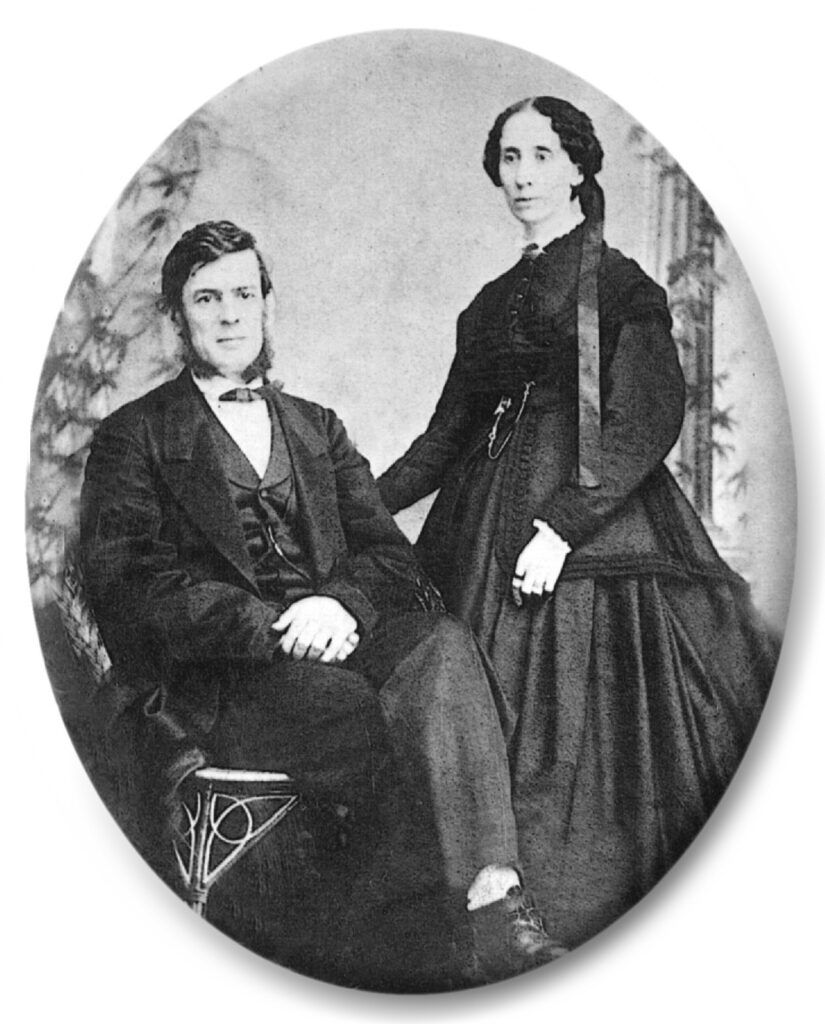
Wilson’s first memory was associated with the new manse in November 1860. In 1909 he recalled “standing at my father’s gateway in Augusta, Georgia, when I was four years old, and hearing someone pass and say that Mr. Lincoln was elected and there was to be war. Catching the intense tones of his excited voice, I remember running to ask my father what it meant.” Although born in Ohio, Wilson’s father espoused the Southern cause during the war, preaching sermons in defense of slavery, hosting the convention in Augusta that made the Southern Presbyterians a separate denominational body, and participating in various charitable and social service organizations such as the Georgia Relief and Hospital Association and the Bible Society of the Confederate States. In the summer of 1863 he also served as a chaplain in the Confederate army.
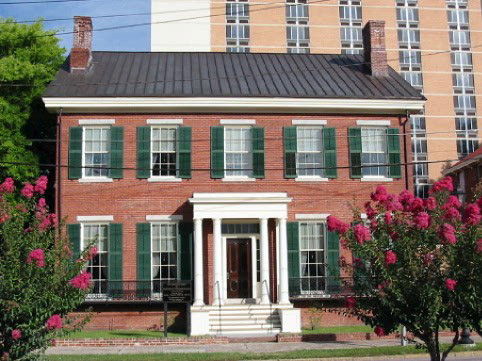
As a boy Wilson was sheltered from much of the horror of the Civil War (1861-65). Nevertheless, some of his early memories included seeing wounded and dying soldiers in his father’s church and fenced churchyard, which was commandeered by the Confederate government as a hospital and makeshift stockade for wounded prisoners brought by train to Augusta for medical care after the Battle of Chickamauga. Later, he would see Confederate president Jefferson Davis brought through the streets of Augusta under guard of Union soldiers after Davis’s capture in south Georgia in 1865.
Wilson’s formal education began in Augusta. He did not learn his letters until the age of nine, and could not read until he was about eleven. Modern medical historians have determined that he suffered from symptoms of developmental dyslexia, something that he would overcome as an adolescent and adult. Beginning in 1866 or 1867, he attended Professor Joseph Tyrone Derry’s select school for boys, located in a cotton warehouse on Bay Street, where he was given the rudiments of a classical education. During these years he formed a friendship with his classmate and next-door neighbor Joseph Lamar Rucker, who would later serve as a justice on the U.S. Supreme Court.
By 1870 Wilson, with some of his classmates as well as other neighborhood boys, formed the Lightfoot Baseball Club, of which Wilson was elected president. This first leadership role foretold his interest in governmental and organizational structure. Wilson wrote a set of bylaws for the club members to follow and required them to practice parliamentary procedure during their meetings, which were often held in the hayloft of the carriage house behind the Wilsons’ home.
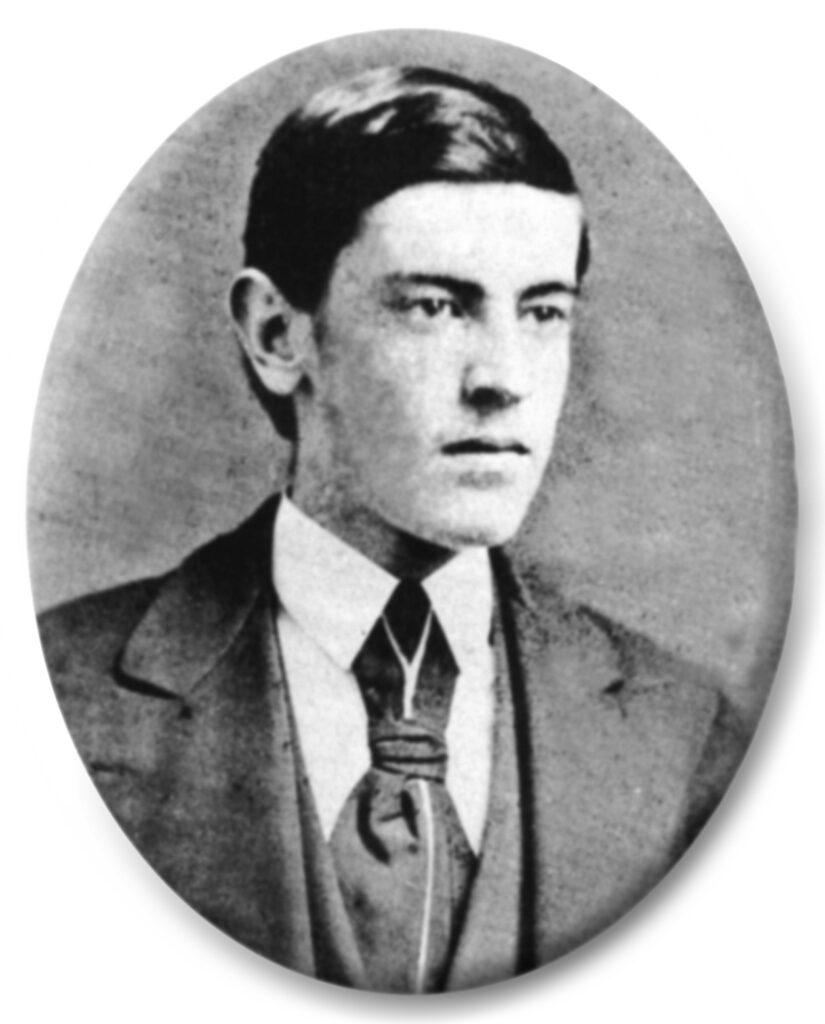
In 1870 Wilson’s father was called by his denomination to become professor of pastoral and evangelical theology and sacred rhetoric at the Columbia Theological Seminary, then located in Columbia, South Carolina. Although the appointment was a great honor, it was with some reluctance that he moved his family from Augusta.
Atlanta
After completing his formal education at Davidson College in Davidson, North Carolina, the College of New Jersey (later, Princeton University), and attending law school at the University of Virginia, Wilson, who had dropped his first name in favor of the more distinguished Woodrow, decided to establish a law practice in Atlanta. He moved to Atlanta in May 1882 and shared an office at 48 Marietta Street, at the corner of Forsyth, with his partner, Edward Ireland Renick, another former law student at the University of Virginia. The 1883 Atlanta City Directory listed 143 lawyers in town, a serious challenge for young attorneys. Few clients materialized. By early 1883 Wilson was discouraged and complained that he had collected only one or two small fees and that most of his time was spent waiting for work to materialize and attempting to collect “numberless desperate claims.” His father continued to subsidize him, and he remained in Atlanta through June 1883.
Rome
During this period Wilson spent time in Rome with his uncle, James W. Bones, in settling the estate of another uncle. There he met Ellen Louise Axson, the daughter of the Reverend Samuel Edward Axson and Margaret Jane Hoyt. After a brief courtship Wilson persuaded Ellen Axson to marry him, but not until he decided to give up the practice of law and returned to school at Johns Hopkins University in Baltimore, Maryland, where he received a Ph.D. in 1886. Meanwhile, she attended the Art Students League of New York. Wilson and Axson married in Savannah on June 24, 1885, in the manse of the Independent Presbyterian Church, the home of Axson’s grandfather.
Later Career
In the 1880s Wilson’s career as a teacher took him to Bryn Mawr College in Pennsylvania, followed by a stint at Wesleyan University in Middletown, Connecticut. He went to Princeton University in 1890 as professor of jurisprudence and was appointed president of that institution in 1902. After his resignation in 1910, he was elected governor of New Jersey as a Democrat, serving in 1911 and 1912. He was the Democratic candidate for president in 1912 and was elected over incumbent William Howard Taft and former president Theodore Roosevelt, who had split the Republican vote. He served two terms, from 1913 to 1921.
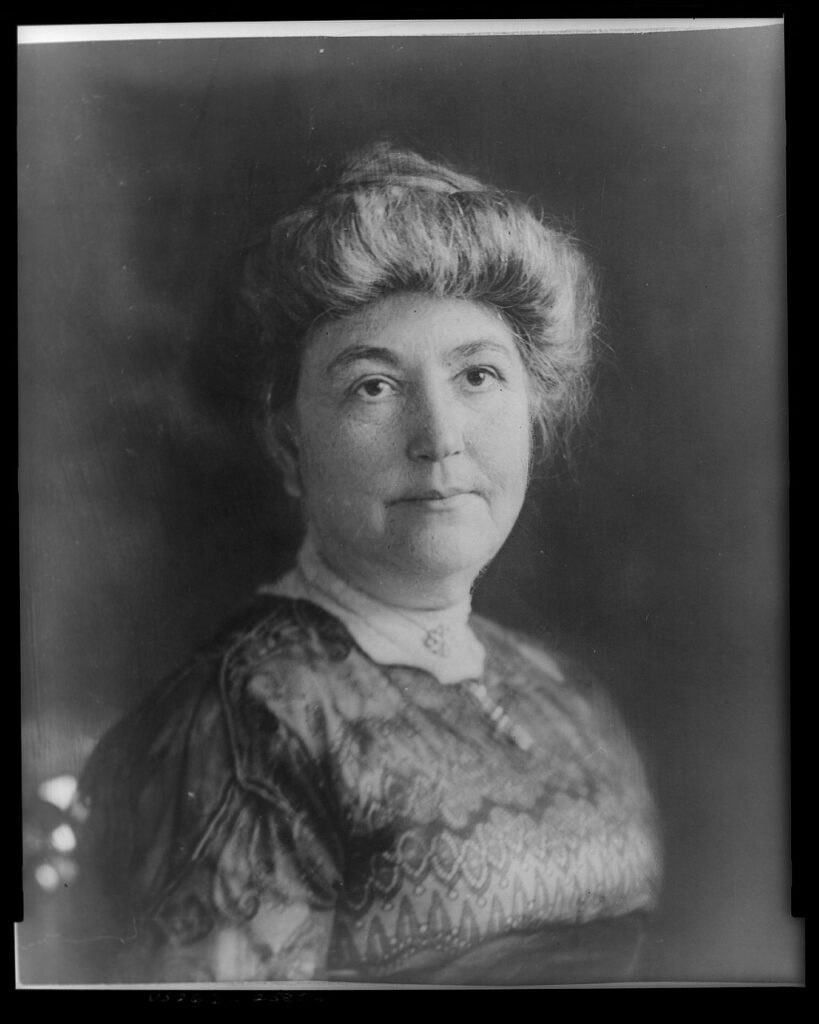
Ellen Wilson, who suffered from kidney disease, died on August 6, 1914, seventeen months after her husband became president. She is buried in Rome, at Myrtle Hill Cemetery. Wilson was remarried in December 1915 to Edith Bolling Galt. He died in Washington, D.C., on February 3, 1924, and is buried in a crypt in the Washington National Cathedral.


